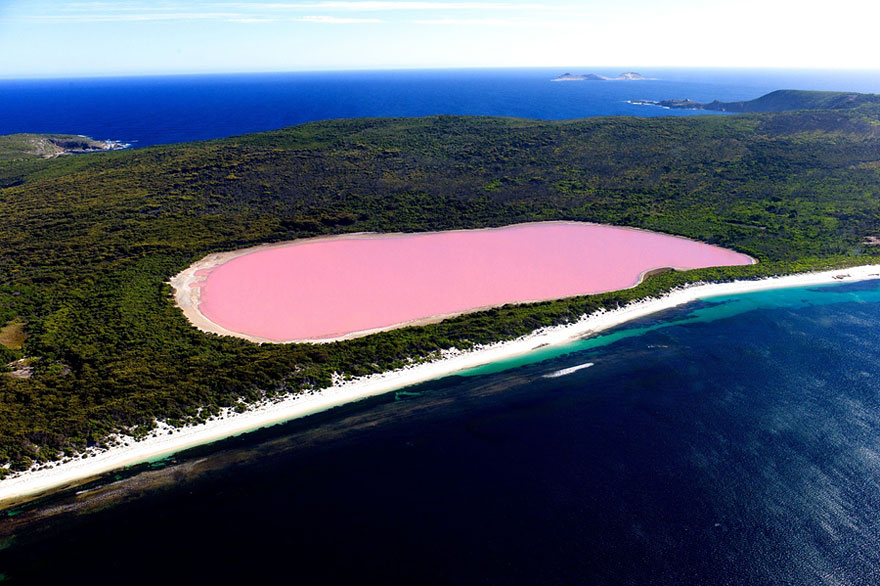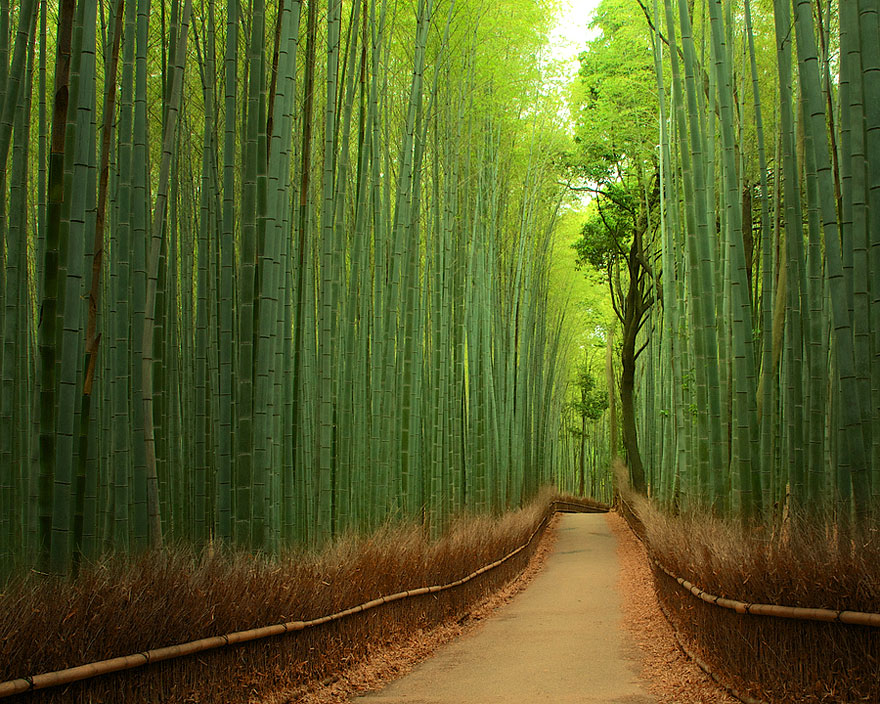7 Incredible Natural Places to See before you Die
2 min read
Greenmoxie™ –
The Wisteria Tunnel, Japan
A walk through the wisteria tunnel at Kawachi Fuji Gardens in Kitakyushu is a truly magical experience. Wisteria is a kind of pea which creates these beautiful bunches of purple flowers in the spring.
Lake Hillier
Lake Hillier, is a pretty pink lake on Middle Island, the largest of the islands that make up the Recherche Archipelago of Western Australia. The salt lake gets its signature color from a dye created by the organisms Dunaliella salina and Halobacteria and red halophilic bacteria in the salt crusts.
Canola Fields of Luoping County
Luoping County in China has endless terraces of canola fields. When these fields bloom in early spring, the countryside is transformed into a golden riot of color that attracts many tourists.
Tulips in the Netherlands
Every spring, thousands of tourists flock to admire the tulip fields of the Noordoostpolder in the Netherlands. The annual tulip festival offers tourists a wealth of activities and breathtaking views of the tulip fields.
The Bamboo forests of Kyoto
The Arashiyama bamboo forest outside Kyoto is a serene area where bamboo sways and creaks. Bamboo is actually a type of grass, but its strength and durability has made it an essential material in Japanese culture for everything from spoons to spears. The fastest growing plant on earth, bamboo can grow up to four feet in a 24 hour period.
Zhangye Danxia Landform Geological Park
Situated in Gansu province, China, the unusual color of the Zhangye Danxia rocks are a result of deposits of red sandstone and minerals.
Roraima
This incredible mountain rises up from the Amazon Jungle and its sheer cliff faces made it impenetrable until Sir Everard im Thurn walked up a forested ramp in December 1884. It’s the same route climbers use today. The mountain holds cultural significance for local Pemon and Kapon natives of the Gran Sabana whose myths and legends tell stories of pterodactyls which lived on the mountain’s plateau. 2006, Roraima was the focus of the award-winning Gryphon Productions two-hour television documentary The Real Lost World and in 2009 it was the focus of the animated movie ‘Up’.
Many of the plant and animal species that occur on the top of Mount Roraima are unique to this single location including pitcher plants (Heliamphora), Campanula (a bellflower), and the rare Rapatea heather as well as the Oreophrynella quelchii, commonly called the Roraima Bush Toad.
Greenmoxie team traveled to Roraima a few years ago. Here are some of our pictures.
(c) Greenmoxie™ – Read entire story here.














